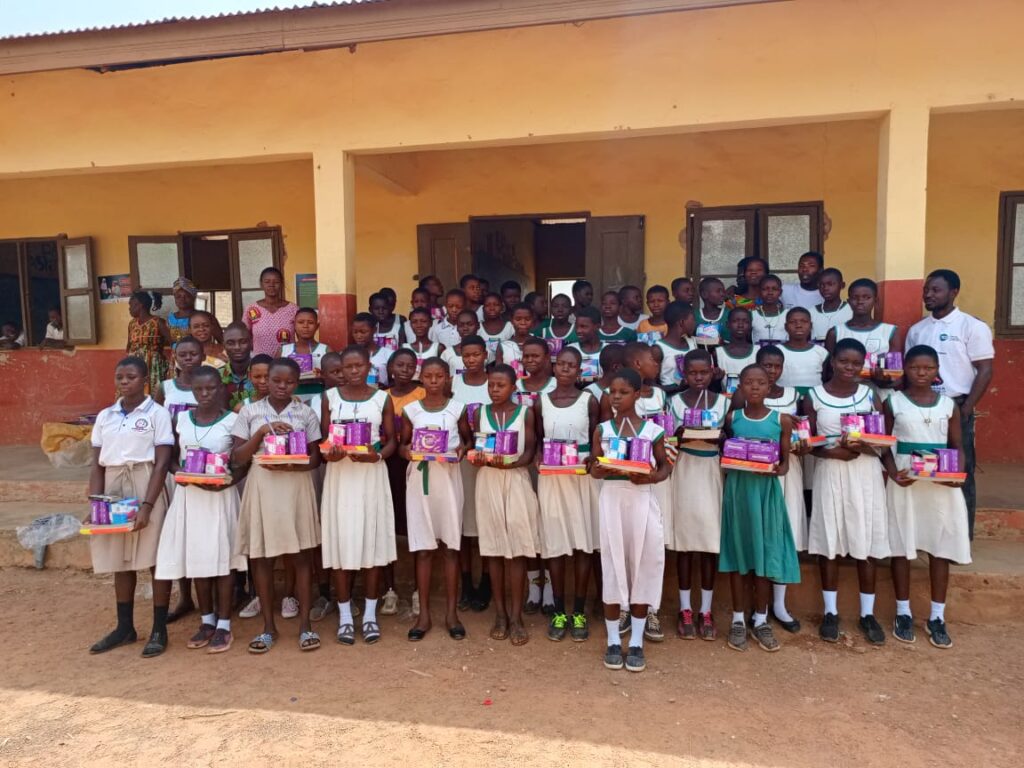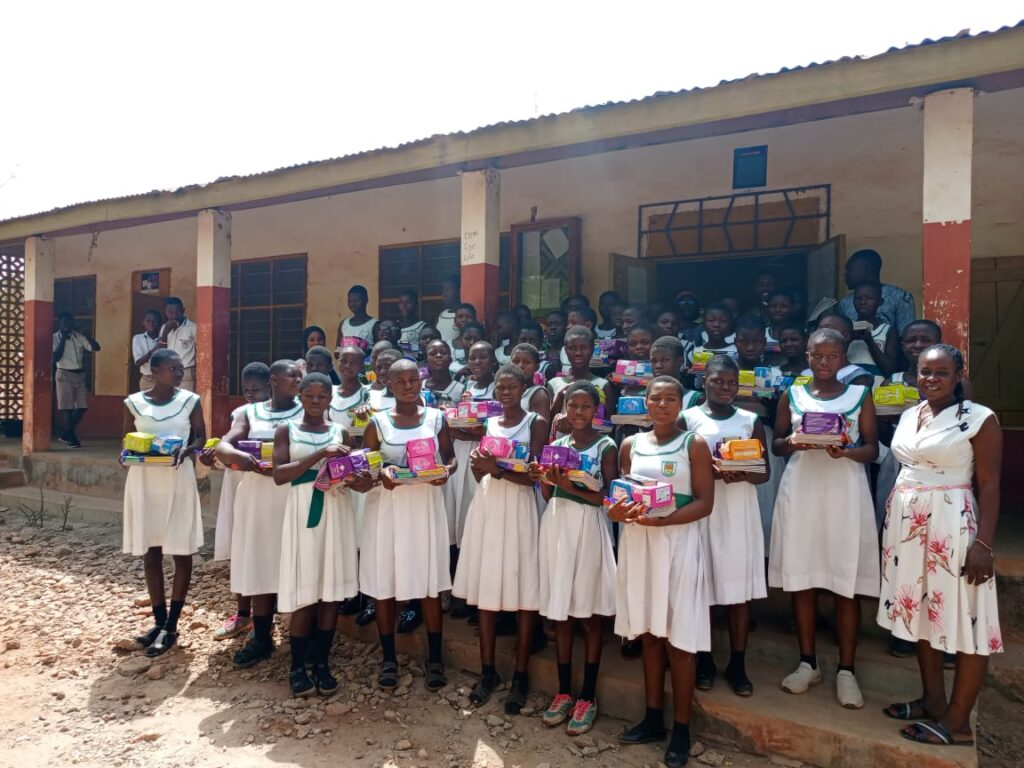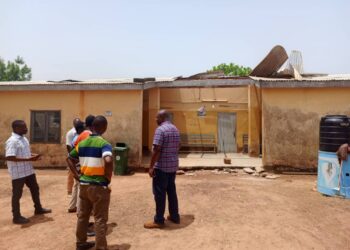For many schoolgirls in rural Ghana, menstruation is not just a biological process—it is a challenge that often keeps them out of school. Rose Aawulenna, a Ghanaian PhD student at the University of Tasmania, Australia, is changing that reality for 282 girls in Nandom.
With a grant from the 2025 Inspiring Women in STEMM Fellowship Program, Rose provided sanitary pads and writing materials to students in four schools: St. Maria Goretti JHS, Kogle Basic School, Nandom Girls Model JHS, and Naa Polkuu Primary School.
At Naa Polkuu Primary School, Priscilla Bangnia could not stop smiling as she received her donation. “There are times I don’t want to come to school because I don’t have writing materials. On days that I come, I do not have a book to write notes or exercises. It makes me feel bad. I want to be a nurse in the future,” she shared.
For Erica Baawuo, a final-year student at Nandom Girls Model JHS, the donation came as a relief. “These items have come at the right time. My father is late, and my mother is living with a disability. It has not been easy for me.”

Beyond the donations, public health nurses from St. Theresa’s Hospital in Nandom visited the schools to educate students about menstrual hygiene. In an open discussion, both boys and girls asked questions, helping to break the silence around menstruation.
Although Rose could not be present, she recorded a video message that was played for the students, encouraging them to embrace education and consider careers in STEMM (Science, Technology, Engineering, Mathematics, and Medicine).

Headteachers and parents praised the initiative, noting that such support helps girls stay in school and excel in their studies.
As part of her efforts, Rose has also organized a radio discussion on menstrual health, urging community members to support young girls.
Her story is a testament to how one person’s determination can change lives and inspire the next generation.


















